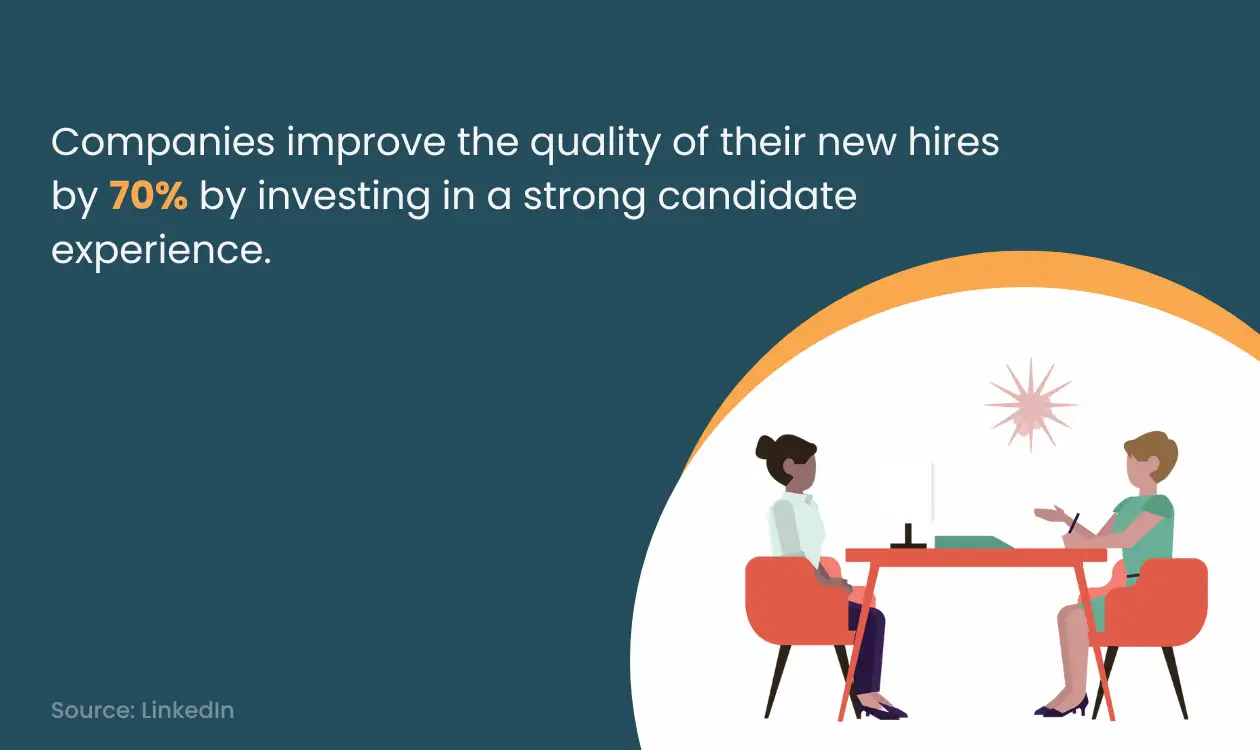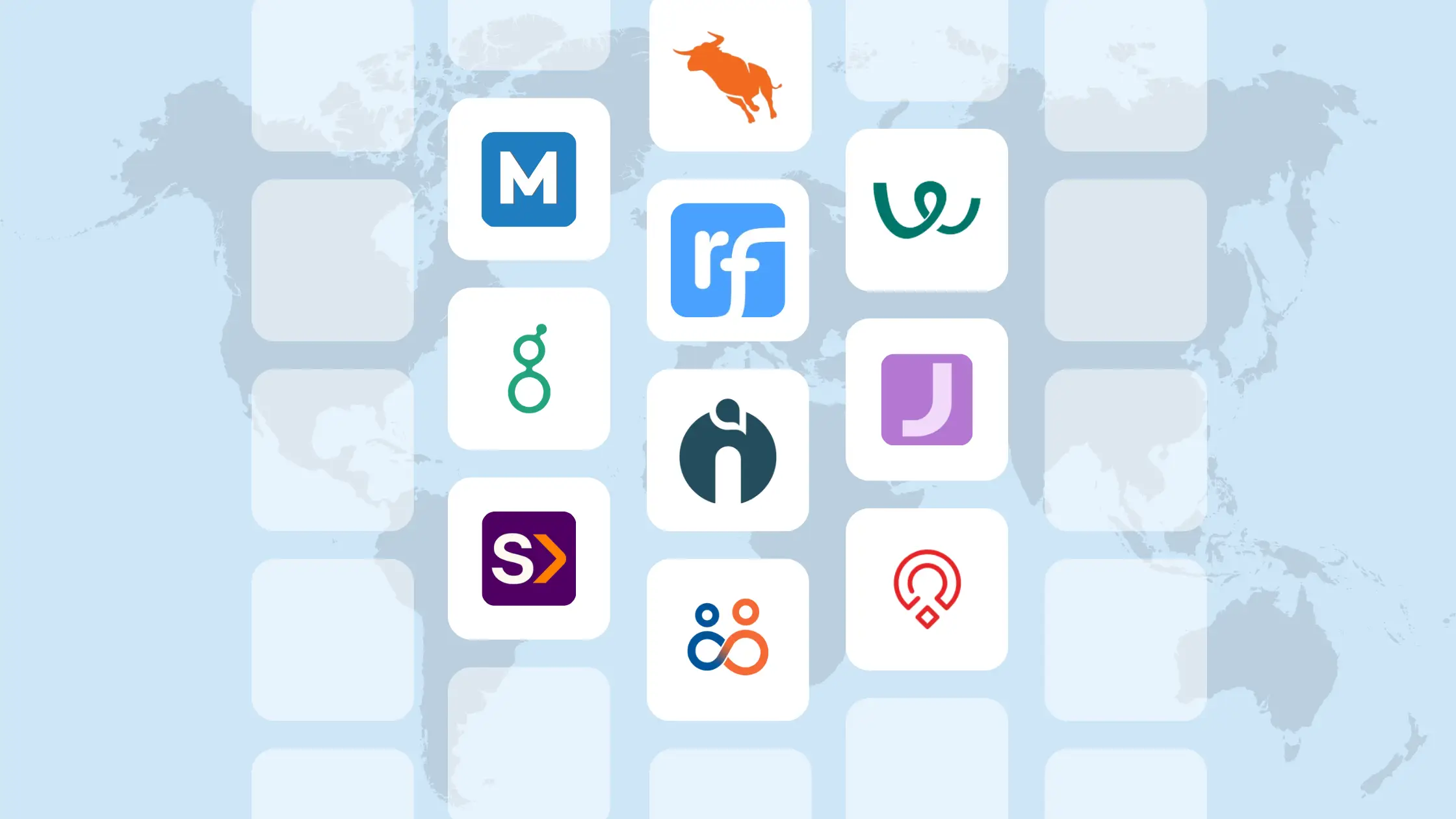The recruitment process can be an arduous task for any organisation, but it doesn't have to be. Building a data-driven recruiting strategy can help make the process more efficient and effective. A data-driven recruiting strategy uses data and analytics to inform decisions and optimise recruitment efforts. In this blog post, we'll explore the top 5 benefits of building a data-driven recruiting strategy.
From increased efficiency to improve candidate experience, there are plenty of advantages to be gained from adopting this approach. By the end of this post, you'll be equipped with the knowledge and skills to implement a successful data-driven recruiting strategy.
Top 5 Benefits of Data-Driven Recruiting Strategies for Recruiters
1. Increased Efficiency in Recruitment
Having a data-driven recruiting strategy in place can significantly reduce the amount of time it takes to fill a position. By collecting and hiring analytics data, recruiters and hiring managers can quickly identify which candidates possess the skills and qualifications that are most relevant to the role.
Additionally, data-driven strategies can help to identify any existing gaps in the recruitment process and ensure that each stage of the process is being optimised for maximum efficiency.
With the insights gained from data analysis, recruiters can also focus their efforts on activities that will have the most impact on their ability to fill positions quickly and effectively. In this way, data-driven recruiting strategies can lead to a more efficient recruitment process to hire top talent, allowing companies to fill positions faster and save time.
2. Improved Quality of Hires
One of the most important benefits of building a data-driven recruiting strategy is improved quality of hires. By leveraging data, you can better understand the qualities and skills that make up the ideal candidate for the role you are looking to fill. Having a comprehensive view of what the ideal hire looks like can help you make more informed hiring decisions, leading to hiring higher-quality candidates that fit well within your organisation.
Using data also allows you to tailor job postings to attract top talent and better target the right people for the job. With this data-driven approach, you’ll be able to gain insights into the best practices for targeting specific audiences and refining and crafting effective job descriptions so that you can reach qualified candidates and increase the likelihood of finding an exceptional hire.
Finally, relying on data can also provide valuable insight into how your current employees are performing in various roles and what areas need improvement or additional training. With this information, you can refine your hiring process further to ensure that each new hire will bring something valuable to the table.
3. Reduced Time-To-Hire
One of the biggest benefits of having a data-driven recruiting strategy is that it can help to reduce the amount of time it takes to hire new candidates. By utilising data-driven strategies, employers can make decisions quickly and accurately about which candidates to consider for their open positions.
Data-driven strategies can also help to automate certain aspects of the hiring process, such as reviewing resumes, scheduling and managing interviews, and conducting background checks. This recruitment automation can significantly speed up the hiring process and help employers find the right candidate in less time.
Additionally, by analysing hiring and recruitment metrics from past hiring practices, employers can gain insight into how long certain positions typically take to fill, allowing them to set realistic timelines and benchmarks for each role. Ultimately, data-driven recruiting strategies can help employers quickly fill positions while still ensuring they are bringing on qualified and talented candidates.
4. Cost Savings
Data-driven recruiting strategies can have a positive impact on the bottom line of an organisation. By leveraging data to source the ideal candidate, employers can eliminate the costs associated with making a bad hire. With a data-driven approach, organisations can assess their current hiring practices and identify areas where they are losing money and make improvements.
Additionally, by having access to accurate and comprehensive data about their applicant pool, employers can save money by optimising the recruiting process and streamlining the onboarding process for new hires. This means fewer resources spent on recruiting and more time spent on development and training to ensure employees are successful.
Data-driven recruiting strategies can also help employers to reduce turnover by targeting potential candidates who have the skills and experience to fit the position and culture. By reducing turnover, employers can save time and money associated with rehiring and retaining new hires.
5. Better Understanding of the Candidate Pool
Using data-driven recruiting strategies can provide employers with a better understanding of their candidate pool. Data-driven insights can help employers identify gaps in the talent pool and better understand the skills, qualifications, and backgrounds of their applicants.
Employers can use this knowledge to create targeted recruitment strategies that are more likely to attract a diverse range of candidates from different backgrounds with the relevant skills needed to excel at the role.
Additionally, data-driven insights can be used to track trends in the talent market and inform how employers attract, recruit and retain talent. This data can give employers an edge over competitors by helping them predict market trends and adapt their hiring processes accordingly.
Finally, using data-driven recruiting strategies provides employers with increased transparency in the entire recruiting process. By analysing data such as applicant feedback, employers can better understand what is working and what isn’t in their hiring process and identify any areas that may need improvement. In addition to ensuring fairness, this can help employers make more informed decisions when it comes to selecting the right candidate for the job.
Final Thought on Benefits of Data-Driven Recruiting Strategy
A data-driven recruiting strategy is a powerful tool for any organisation. With its ability to improve the efficiency, quality, and speed of your recruitment process, as well as provide cost savings and insights into your candidate pool, you can ensure you're making the best hire possible.
It's important to remember that every business has different needs and challenges when it comes to recruitment, so make sure to customise your data-driven recruiting strategy to meet these unique needs. When done properly, a data-driven approach can help you find the right people to join your team and help your business reach new heights.












